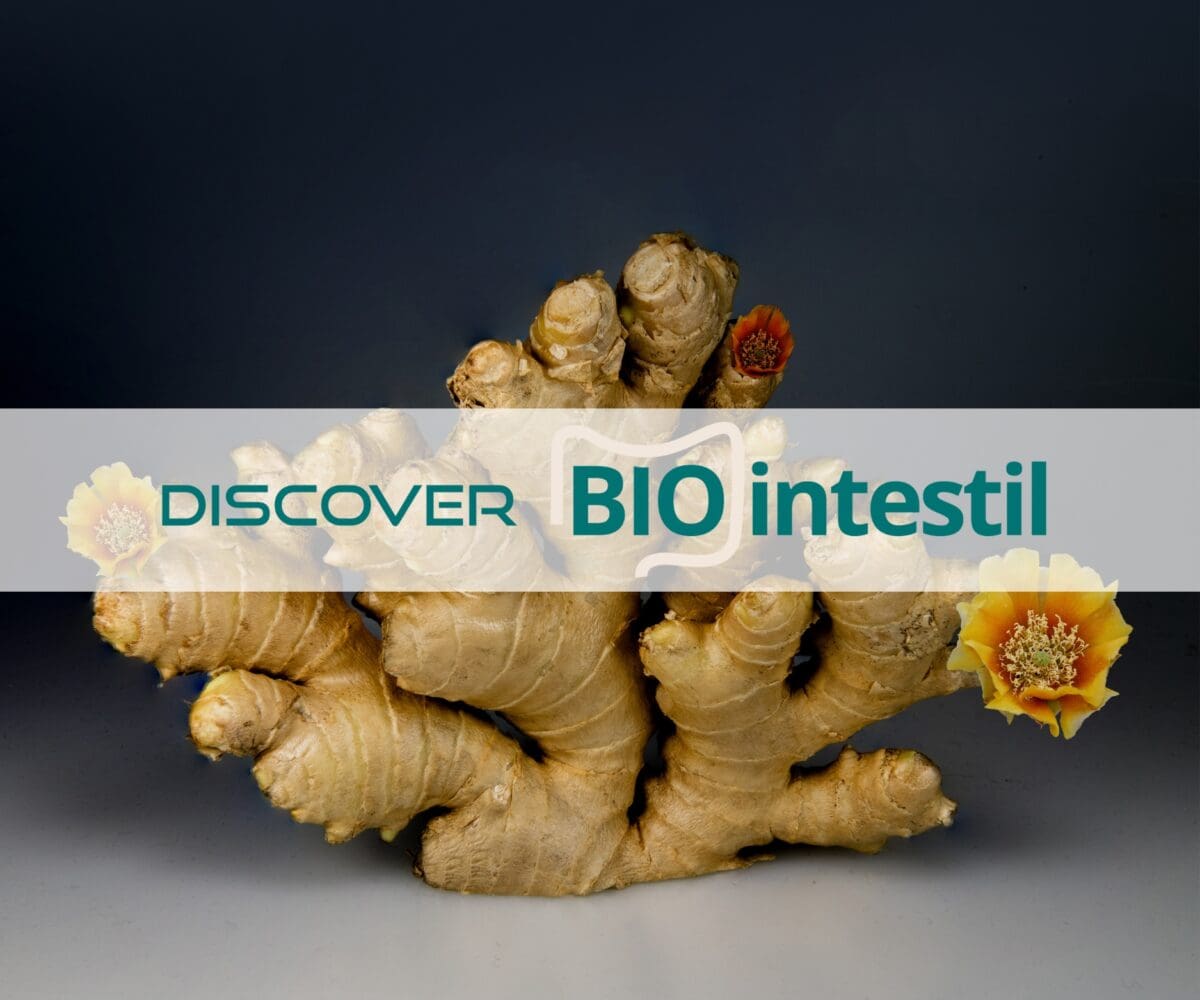BIOintestil is the first raw material patented by TGD. It contains ginger rhizome powder (Zingiber officinalis) and Palmarosa essential oil (Cymbopogon martinii). It is an excellent product for formulating dietary supplements to address digestion issues. The research journey that led to the creation of BIOintestil concluded with a double blind clinical trial, controlled with placebo, involving patients with IBS. Watch the video to see the presentation by Prof. Enzo Spisni in collaboration with our partner Fagron Italia.
BIOintestil for dysbiosis
The intestinal microbiota is a complex community of numerous bacterial, fungal, and viral species. These coexist in balance with each other and with our body, forming a so-called ‘superorganism.’ This is because biological functions are influenced by both human and microbiota genes, with microbial genes being approximately 1000 times more numerous than human genes. The combination of the human and microbial genetic arsenal allows them to act synergistically. Intestinal well-being is crucial precisely for this reason: when the microbiota is in a state of eubiosis, the entire superorganism functions better.
The formulation
The creation of BIOintestil stemmed from research on a specific component of Palmrose essential oil. Geraniol, the major constituent, is a terpene with a pleasant fragrance reminiscent of geranium, as the name suggests, and it possesses excellent health properties. Indeed, it is a compound that has demonstrated powerful anti-inflammatory and antimicrobial properties.
BIOintestil also contains ginger rhizome powder, a plant traditionally used for digestive system well-being. Specifically, the presence of 6-gingerol makes this plant remarkable for its anti-inflammatory and digestive properties.
The unique formulation of this dietary supplement ingredient allows the essential oil not to be absorbed in the intestine. When BIOintestil reaches the colon, the microbiota ferments the ginger fiber. This enables the release of the essential oil directly into the intestine, where it can exert its selective antimicrobial action.






